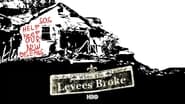Jeanskynebu
the audience applauded
AniInterview
Sorry, this movie sucks
Maleeha Vincent
It's funny, it's tense, it features two great performances from two actors and the director expertly creates a web of odd tension where you actually don't know what is happening for the majority of the run time.
Fleur
Actress is magnificent and exudes a hypnotic screen presence in this affecting drama.
rovivrus
I cried, more than once. This is a very rare occurrence for me watching a film. Considering this was made by a "big-name" filmmaker, I was surprised to see the subtlety, honesty and roundedness. This was the kind of documentary that rarely makes it into cinemas here (and it was released here 'theatrically'). They usually end up (like most ofthe other great stuff being made) on BBC4 at midnight. It was comprehensive, beautifully structured and absolutely HUMAN. So many documentary filmmakers are trying to be Michael Moore; why don't a few try to be more like Spike Lee?
ThatMonkey
Educational, Entertaining and Engaging. See what the news couldn't show you. Find out what key people had too say as the story unfolded, uncensored. Find out about the political side of Katrina.If you can even spell Louissana, you need to see this movie. Gripping interviews from all sides. Blacks, whites, residents and influential figures. Get to know these people. Be a spirit around the city and Mr. Lee takes you on a journey that will give you a bitter taste of what so many lived through.Stagering facts, stats and images will haunt you and you will learn a new meaning of 911.
bob the moo
I apologise for stealing another person's point but I will make reference to the review written by Ric-7 and the first point he makes. A requiem is like a lament, a time to reflect and grieve over a loss or event. An autopsy or an enquiry is not a lament but is a clear look at the loss or event to identify the reasons for it. By putting requiem in the title of his film, Lee is making it clear for everyone that the intension is to grieve over that happened rather than deliver a precise factual opinion on what happened. So criticisms that this isn't precise and a tighter affair are unfair.However having said that the film does a great job of providing balance – surprisingly so from Spike Lee, who I expected to play the race card, play everything up and point fingers in a one-sided diatribe. It could not have been further from the truth though because the film is actually pretty balanced. Of course there is an inevitable slant towards how terrible this whole shooting match was and is but then that is more to do with the fact that the whole event was terrible in all sorts of ways rather than the makers over-egging the cake. Set out in four acts the film deals with the build up and hitting of Katrina in act 1; the aftermath and response of the authorities in act 2; the human fall out as the evacuees try to cope in act 3 and finally the attempts to clear the city and look back in act 4.Watching it is a difficult experience. This is not because of the running time though, because it is so consistently engaging that I found my intentions to watch it in four parts turned into one sitting that seemed a lot shorter than it was. No, it is a difficult experience because of the emotions that hit you throughout. The loss of those caught up is well painted and several contributions had me crying although the film doesn't let us accept all of the victims as blameless and does feature people stating that they chose to stay. Of course the majority were expected to pick up their poverty and head across America to wherever and this makes up the secondary emotional hit. The film does show the things we know about – Bush's administration apparent lack of interest, the mess with FEMA and so on but it doesn't dwell on it that much and it doesn't get into finger pointing much beyond this – again we know this already and I doubt anyone looks at Bush's role in the aftermath and views him with anything other than embarrassment. For this reason it is also nice to be reminded of Barbara Bush's comment that many of the victims were better off living in a sports arena in Texas – I would laugh if I hadn't been sickened.However the film follows this with two acts on the wider aftermath and the pain continues. The second half of the series does get a bit slower and "matter of fact" but still remains gripping. It looks at families thrown all over the US; the lack of victim support and the emotional suffering that continued long after the event. The contributors make the film and they are almost always used well. Most people talk from the heart and are engaging as a result. There are plenty of people who make attacks and sweeping statements. The film doesn't just let these stand though and does include retractions and corrections on rumours such as those of children being raped etc. There aren't any contributions that I can think of that don't add much and nobody hogs the screen – the film uses them well.Visually the film looks good in the footage shot by Lee. As much of the first acts is archive footage you don't get that much of an impression of his style but even his framing of his interviews shows his style. His use of music is good and it was a good call to use the title credit music from 25th Hour to open the 3rd act as it makes a good link between the two events. Overall then a fascinating and emotionally impacting review of the Katrina affair. It is surprisingly balanced and held me easily for four hours and stands as a lament for the human suffering and the political forces that simply don't seem willing or able to work it out.
Lee Eisenberg
I was with my host family in St. Petersburg, Russia, when Hurricane Katrina hit New Orleans. As we watched it on the news, I was absolutely ashamed. Even if I couldn't understand every word, I could see what it looked like, and I didn't know how to explain to my host family the fact that my government abandoned the people of New Orleans.Well, even just seeing it on TV and reading about it through e-mails and over the Internet didn't prepare me for what I saw in Spike Lee's documentary "When the Levees Broke: A Requiem in Four Acts". When I saw just what everything looked like, I was horrified. Aside from the fact that the Crescent City will probably never be the same, the documentary makes clear that this was another example of those in charge screwing the people (certainly that looked like the case during the 1927 flood).Any logical-minded person would have to agree that George W. Bush playing the guitar while New Orleans drowned was the same sort of thing as Nero playing his fiddle while Rome burned, or Marie Antoinette saying "Let them eat cake.": it was the ultimate display of not caring. But the New Orleanians interviewed weren't neutral: that one boy was very clear about what the city needed.I liked how Spike Lee interviewed various figures (Ray Nagin, Kathleen Blanco, etc.) to get their opinions on what what went wrong, even if they sometimes blamed each other. Of course, the biggest blame lies with the Bush administration for its racism, inaction, and starving of government programs (never mind that he'd sent the National Guard to Iraq to fight his vile war). As Rev. Al Sharpton put it, we're supposed to be spreading democracy to Iraq while the people here got nothing.All in all, this just might be Spike Lee's best work ever. It just goes to show what the US government had degenerated into. For the record, Harry Belafonte mentioned how Venezuela's Hugo Chavez had offered New Orleans help; I remember while I was in St. Petersburg reading on the Internet that Cuba's government also offered help (the Bush administration didn't respond, natch). Also while I was in St. Petersburg, I read about Bob Denver's death on 2 September 2005; it turned out that that was the same day that Bush commended FEMA head Michael Brown for "doing a heckuva job". So the last thing that Bob Denver got to see before dying was Bush praising incompetence (even if it wasn't specifically Brown's fault).All in all, a great documentary. And I laud Kanye West for reminding everyone that George W. Bush doesn't care about black people.




